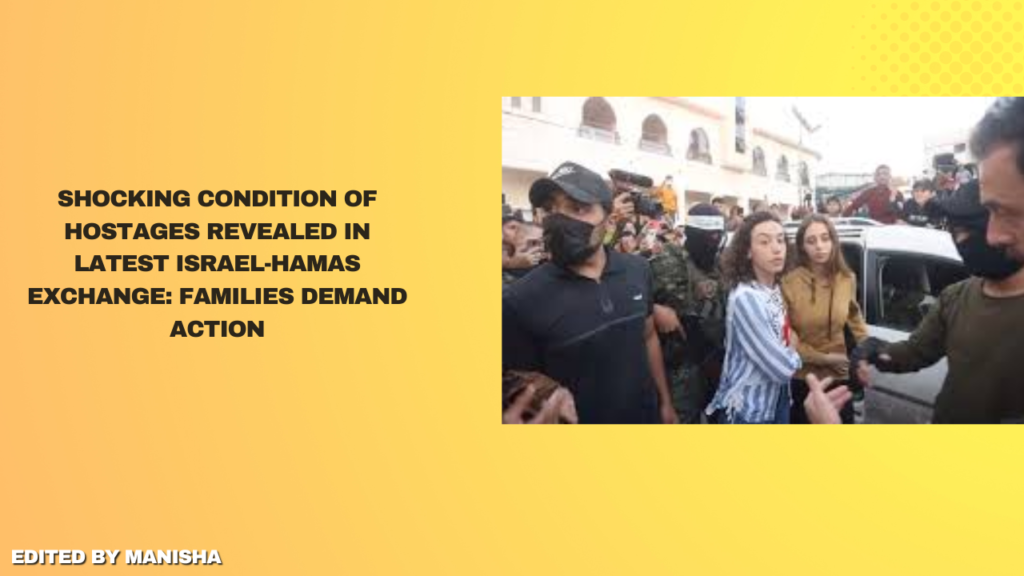
In the fifth round of exchanges between Israel and Hamas on Saturday, three Israeli hostages and 183 Palestinian prisoners were released. The freed hostages—Ohad Ben Ami, Eli Sharabi, and Or Levy—had been held in Gaza for 491 days, since the October 7 Hamas-led attack. Their frail, emaciated appearance drew strong condemnation from Israel, with the families of the hostages expressing horror over their physical and mental condition.
The three men were released in a relatively orderly manner, unlike the chaotic scenes that accompanied the release of other hostages in previous weeks. However, their weakened state was undeniable, and the Israeli government described their condition as “shocking.” The hostages were handed over to the Red Cross in Deir al-Balah, Gaza, before being transferred to Israel for medical evaluations and reunions with their families. Hamas also released a propaganda video featuring the hostages inside a tunnel, marking a shift from previous releases.
Israel, having released 183 Palestinian prisoners in exchange, faced criticism over the health conditions of these detainees, with many appearing frail and in poor health. Among those released, 18 were serving life sentences. The Israeli government’s response included demands for international condemnation of Hamas and assurances that efforts to bring all hostages home would continue.
Levy’s mother, in a televised interview, noted that her son did not know his wife had died during the attack, as he had assumed she was still alive. Other family members, such as those of U.S. hostages, expressed their grief over the condition of the released hostages and urged for further action to include Americans in future negotiations. Israel’s Ambassador to the UN called on the UN to condemn Hamas for the treatment of the hostages.
While the release has prompted public outcry over the hostages’ physical state, the future of the ceasefire agreement between Israel and Hamas remains uncertain, particularly concerning the second phase of the deal. This phase would involve a complete withdrawal of Israeli troops from Gaza, which is highly controversial within Israel’s government.